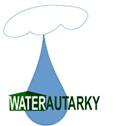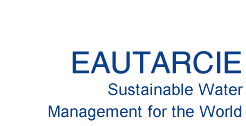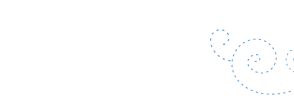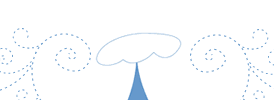
The EAUTARCIE site is not tied to any commercial activity. The information provided herein is included strictly to help the public find the necessary materials and equipment towards realizing their EAUTARCIE system. To help us improve this information service, we invite all readers who have dealt with merchants herein mentioned to let us know their degree of satisfaction. To help us expand this list, all information on the existence of merchants who have adopted the EAUTARCIE philosophy and ethical practices propounded herein are welcomed.
The text within this page was first published on www.eautarcie.com: in 2006
The original text has been adapted and translated in English by André Leguerrier and was first published on this page at www.eautarcie.org: 2009-10-01
Last update: 2017-04-23


The PLUVALOR System on the Market
With the instructions and recommendations given on this website, one can successfully implement a PLUVALOR system without needing to consult a rainwater harvesting « specialist ». Concrete tanks, pumps, well pumps systems, 25-, 10- and 5-micron filters, reverse osmosis and activated carbon ceramic filters are all available on the market. Be careful not to get influenced by salespersons who know nothing of the PLUVALOR system. Yet it stands that these salespersons have the right equipment for your needs.
Most rainwater harvesting suppliers are ignorant of all the possibilities of whole-house reuse for rainwater. They will propose expensive equipment unsuited to the PLUVALOR system. Therefore read very discriminately all literature on rainwater.
To our knowledge, the Belgian chapter of Friends of the Earth International is the only organization that defends the environmental precepts on sustainable water management as propounded on this website. Their permanent staff is available to adequately counsel potential builders and other interested parties (in Belgium) in the field of whole-house rainwater harvesting and wastewater management.
Contact: Friends of the Earth (Belgium), Tel.: 0032.81.40.14.78,
Email: ter-amikaro@tiscalinet.be
Where to buy PLUVALOR components
In Belgium and France
(Free publicity) Dellan & Co. sells equipment for whole-house rainwater recycling. Dellan also services France. Their material includes pumps, filters, aquarium aerators, water level indicators for the cistern (water tank level gauges![]() ), leaf interceptors, floating strainers. You can also purchase the needed equipment to make drinking water from rainwater.
), leaf interceptors, floating strainers. You can also purchase the needed equipment to make drinking water from rainwater.
Two systems are marketed: the AQUASAIN system (ceramic microfiltration) and reverse osmosis.
Address: 74, route d'Ath, B-7020 Nimy in Belgium. Tel.: 0032.65.77.85.21 or 0496.507.505. Email: info@dellan.be or dellan@skynet.be.
Website: http://www.dellan.be/:
contact: Philippe Delmeule.
(Free publicity) Getting your cistern installed can be done by BELOT, 27, rue du Caillou, B-7063 Chaussée Notre-Dame. Tel.: (32)67.45.81.11.
Email: entbelot@scarlet.be.
(Free publicity) Is'eau Énergie appears to adhere to the philosophy behind the EAUTARCIE website.
Contact: http://www.iseauenergie.net
(Free publicity) SALUBREM also sells materials for whole-house rainwater recycling.
Contact: http://www.salubrem.net/ .
Worldwide
The PLUVALOR system is poorly known outside of French-speaking Europe and my native Hungary, yet you will find most of what you need in most regions to realize a PLUVALOR setup.
How to deal with a rainwater harvesting equipment supplier
Merchants who sell equipment for home water management must comply with the law. In France for example, it is compulsory to use potable water for every single use in the house. Short of encouraging civil disobedience, I must point out the incoherent laws and inadequate water legislations in existence. In some cases, the techniques recommended AND imposed, like disinfection by chlorination or UV irradiation can be justifiably considered as a breach on public health.
When consulting a supplier, you will often hear recommendations on placing activated carbon filters and especially UV lamps in the household's water network for all water uses. Don't be too easily impressed by a « green » set speech about rainwater harvesting when the supplier or merchant recommends using rainwater for the flush toilet, garden and laundry. You can be certain he or she ignores the latest scientific developments about rainwater recycling, or for personal reasons, he or she prefers not to acknowledge the sustainable water management principles of whole-house rainwater reuse. He or she will have you spend lots of money on an inappropriate solution. And I am not even speaking of the totally inadequate environmental approach of the industry.
Activated carbon is called upon to eliminate micro-pollutants (pesticide residues, hydrocarbons) and cistern odours. For sanitary use in a rainwater harvesting system, the experience of thousands of households has shown that this type of filter is not necessary. Odours are controlled – in the great majority of cases – by the aquarium aerator recommended herein. This equipment does not even have to work all the time. Many users never have to turn it on.
Yet in some specific cases, you may have to resort to activated carbon filtration in the home's main rainwater plumbing network (the one that delivers « innocuous » domestic water for non-food uses). This may be necessary, for example, to screen odours from rainwater harvested on certain types of synthetic roofs, where aeration of the cistern doesn't work. Otherwise, contrary to recommendations by most merchants, you needn't install an activated carbon filter on the main rainwater plumbing network. If you have problems with odours, consult your supplier on the purchase cost of such a filter when compared to its annual operating cost (i.e. filter changes).
Certain merchants also recommend filtering all water used by the household down to 5 microns, even to 1 micron. This is not really necessary, while at the same time being expensive. One and 5-micron filters tend to block up very quickly. They require frequent maintenance without proven practical use. On the contrary: the weaker a filter's porosity, the greater the pressure loss and the weaker the water flow will be. In practice, water filtered at 25 to 30 microns, followed by a second filtering down to 10 microns satisfies all non-food requirements. A 10-micron filter provides clear water. Such a filter placed in the home's plumbing network filters a considerable amount of impurities. In some city water fed homes for instance, a 10-micron filter placed right after the water meter is saturated with impurities within two weeks.
I must also insist: for rainwater, no UV lamp is required to disinfect the water: a ceramic filter or reverse osmosis unit suffices. You absolutely do not need a water conditioner to filter out calcium, nitrates, etc. nor filters against iron and/or heavy metals. You must never forget that these filters were not designed for rainwater, but for city water.
Nowadays, you will find so-called « miraculous » filtration systems coming from America. One should consider that tap water found there is often of poor quality and is some cases declared as non potable. For the populations concerned, this is a good thing, in a way, because the distribution of non-potable water that yet remains relatively safe and harmless greatly reduces the cost of water. Such water is suitable for all domestic purposes, except for drinking and food. Many Americans drink mostly bottled water, or their homes are equipped with a system to produce drinking water from tap water. The water filtration apparatuses imported from the United States are extremely expensive as they are suitable for treating non-potable water distribution that usually contains heavy metals, nitrates and other substances. This is a less extensive problem in Europe.
So don’t get influenced by a sales pitch listing all the undesirable impurities that the device can eliminate in the water. In Europe, many of these are not present, such as bacteria, or in much lesser quantities, such as heavy metals or nitrates.
Be wary of dealers asserting their devices produce « energized », « dynamized » , « ionized » or « living » water from tap water. When these devices don’t alter the chemical composition of water, they are probably irrelevant, and yet always very expensive. In the overwhelming majority of cases, a simple, inexpensive activated carbon filter gives the same result : a substantial improvement in the water’s taste. If in doubt, the EAUTARCIE team will kindly provide you with useful advice.




